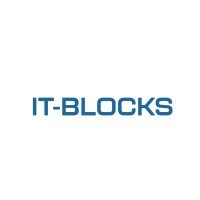Egypt’s Top 8 Edtech Software Companies
Find all the top Edtech providers in Egypt, who leads the MENA region in fully-innovative solutions for School management systems and General learning management systems.
Search by Main focus: #School management system #Learning management system
-

SIMS Education
Integrated school management software, digital learning solutions, parent-student engagement.
Edtech solutions in Egypt: The rise of school management and learning management systems
Egypt has established itself as a leader in the edtech landscape, driven by an increasing demand for digital transformation in education. With a dynamic population, rapid internet penetration, and a government keen on educational reform, Egypt presents one of the most fertile grounds for edtech innovation in the MENA region. Two major pillars of this transformation are School Management Systems (SMS) and Learning Management Systems (LMS), both of which are reshaping the way educational institutions operate and deliver learning experiences. The increasing adoption of cloud-based education platforms, AI-driven learning solutions, and mobile-friendly student portals has contributed significantly to Egypt’s digital education ecosystem.
The role of school management systems in Egypt
Modern schools require digital solutions to manage administrative, financial, and operational processes efficiently. A School Management System (SMS) is a comprehensive software that integrates multiple functions, providing educational institutions with a seamless approach to handling daily tasks. Implementing an advanced school management software in Egypt not only optimizes workflows but also improves communication between parents, teachers, and students, making academic tracking and engagement more effective.
Key features of SMS solutions
- Student information management: Digitally storing student records, attendance, and performance tracking, ensuring accurate and organized academic data.
- Finance and accounting: Automating fee collection, invoicing, payroll management, and expense tracking to streamline financial operations.
- Communication tools: Enabling direct communication between parents, teachers, and administration through mobile apps, email notifications, and SMS alerts.
- Staff management: Scheduling, attendance tracking, and performance evaluation for educators and administrators, allowing institutions to optimize human resources.
- Library and inventory management: Organizing books, supplies, and classroom resources through a centralized system.
- Online admissions and enrollment management: Automating the student admission process, reducing paperwork, and enhancing efficiency.
By implementing a robust SMS, schools in Egypt can streamline operations, reduce administrative burdens, and enhance overall efficiency. This is especially crucial in a country where schools serve large student populations, often with complex logistical challenges. The integration of AI-powered analytics in school management software enables predictive insights that assist administrators in making data-driven decisions.
The significance of learning management systems in Egypt
While school management systems focus on administration, Learning Management Systems (LMS) are at the heart of the educational experience. These platforms facilitate content delivery, assessments, and student engagement, making learning more accessible and interactive. The growing demand for remote learning software, mobile learning apps, and AI-based adaptive learning tools in Egypt is fueling the development of feature-rich LMS platforms that cater to various educational levels.
Core functionalities of LMS platforms
- Course management: Enabling educators to create, organize, and manage course content digitally with interactive multimedia integration.
- Interactive learning tools: Incorporating quizzes, assignments, video lessons, and gamified learning modules to enhance engagement.
- Student performance tracking: Allowing teachers to assess progress through real-time analytics, generating automated reports on student achievements.
- Blended learning support: Combining traditional classroom instruction with online resources for a hybrid approach, supporting flipped classrooms and self-paced learning.
- Collaboration and discussion forums: Encouraging student participation through chats, discussion boards, and group projects to enhance peer learning.
- AI-driven personalized learning paths: Customizing educational content based on student performance and learning preferences, ensuring personalized instruction.
In Egypt, the demand for LMS solutions has surged due to factors such as increased online learning adoption, government-led digital education initiatives, and the necessity for remote learning during disruptive events. These systems provide an avenue for both K-12 and higher education institutions to modernize teaching methodologies and improve accessibility. The expansion of mobile learning platforms in Egypt has enabled students in remote areas to access high-quality educational content through smartphones and tablets, reducing geographical barriers to education.
Why Egypt is an edtech powerhouse
Egypt’s edtech sector is experiencing unprecedented growth, supported by a unique combination of factors that position the country as a leader in digital education solutions. The widespread use of AI-driven student assessment tools, cloud-based LMS platforms, and real-time interactive learning systems is accelerating the country’s digital transformation in education.
1. Large and youthful population
With over 100 million people and a substantial percentage under the age of 25, Egypt has one of the largest student populations in the region. This creates an inherent demand for scalable educational solutions. As digital literacy increases, students and parents are actively seeking innovative online learning platforms that offer flexibility and interactive educational experiences.
2. Government-led digital transformation initiatives
The Egyptian government has been actively investing in education reform, emphasizing digital integration. Various policies aim to improve the accessibility of online learning and the implementation of smart classroom solutions. Nationwide initiatives focusing on e-learning platforms, digital exams, and AI-driven educational analytics have further propelled Egypt’s edtech growth.
3. High internet and mobile penetration
Internet access has expanded significantly, with mobile connectivity playing a crucial role in bridging the digital divide. This has enabled students and educators to engage with online learning platforms more effectively. The adoption of mobile-first education apps in Egypt is enhancing student engagement by providing flexible, on-the-go learning solutions.
4. Edtech entrepreneurship and local innovation
Egypt boasts a thriving startup ecosystem, with many innovators focusing on edtech solutions tailored to local challenges. The development of homegrown SMS and LMS platforms ensures that educational institutions have access to solutions designed specifically for their needs. Many of these platforms incorporate localized curriculum support, bilingual interfaces, and integration with national educational standards.
5. Increasing acceptance of online and blended learning
The cultural shift towards digital learning, driven by recent global events, has accelerated the adoption of LMS solutions. Schools and universities are integrating these systems into their curriculum, paving the way for a more technology-driven educational landscape. AI-powered virtual tutoring, online test preparation platforms, and immersive e-learning environments are becoming integral to Egypt’s education sector.
Egypt’s edtech landscape, particularly in the realms of School Management Systems and Learning Management Systems, is flourishing due to a combination of demographic advantages, government initiatives, and a rapidly evolving digital culture. The country stands as a model for how emerging markets can leverage technology to revolutionize education. With continuous innovation and investment in cloud-based education software, AI-driven analytics, and interactive e-learning content, Egypt is poised to become not only a regional leader but a global contender in the edtech industry.






